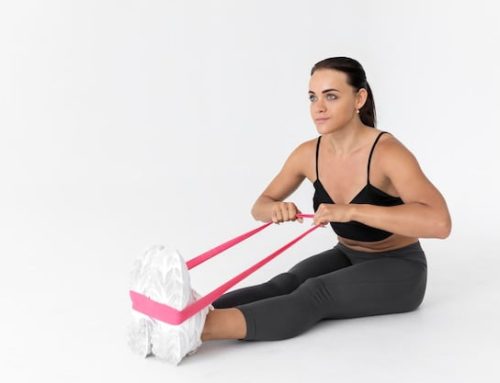Who Shouldn’t Use Resistance Bands?
Resistance bands are an excellent tool for those looking to build strength and muscle, but they may not be suitable for everyone. In this article, we will discuss who should avoid using resistance bands.
1. Individuals with Latex Allergies
Most resistance bands are made from latex, a natural rubber material. Some people have an allergy to latex, which can cause skin irritation, itching, and even severe allergic reactions. If you have a latex allergy, it’s important to avoid latex products, including resistance bands.
Fortunately, there are latex-free resistance bands available on the market. These bands are made from synthetic materials, such as thermoplastic elastomers (TPE), which are allergy-free.
2. People with Joint Pain or Injuries
Resistance band training is generally a low-impact form of exercise, making it suitable for most people. However, if you have joint pain or an injury, it’s important to consult with a doctor or physical therapist before starting any new exercise program, including using resistance bands.
Going too hard on your joints, especially if you have an existing injury, can lead to further pain, swelling and even long-term damage. In this case, low-impact exercises that prioritize form and muscle-building over joint-stressing movements may be more suitable.
3. Pregnant Women
Resistance band training can be an excellent form of exercise during pregnancy, but it’s important to do it under the guidance of a healthcare professional. During pregnancy, your body is going through significant changes, and it’s important to avoid exercises that could put too much stress on your joints and muscles.
While using resistance bands can be helpful in maintaining strength and muscle tone throughout pregnancy, it’s important to avoid any exercises that put strain on the belly, such as ones that require lying prone or supine.
4. People with Cardiovascular Conditions
Some resistance band exercises can be quite strenuous, and if you have a cardiovascular condition, you may need to avoid them. Lifting weights, for example, can put undue stress on the heart and may lead to adverse events.
If you have high blood pressure, heart disease, or any other cardiovascular condition, it’s important to consult with your doctor before starting any new exercise program, including using resistance bands. They may recommend starting with low-impact exercises before gradually building up to more strenuous activity with resistance bands.
5. Those with Decreased Sensation or Nerve Damage
Resistance bands are excellent for building strength, but they can also pose a risk to those with decreased sensation or nerve damage. If you have decreased sensation or nerve damage due to a medical condition (such as neuropathy or multiple sclerosis), you may not be able to feel when you are overexerting yourself.
For this reason, it’s important to consult with a doctor or physical therapist before using resistance bands if you have decreased sensation or nerve damage. They can help you identify exercises that are safe and appropriate for your specific condition.
Conclusion
While resistance bands can be an excellent tool for building strength and muscle, they may not be suitable for everyone. Individuals with latex allergies, joint pain or injuries, pregnant women, those with cardiovascular conditions, and those with decreased sensation or nerve damage should consult with their doctor or healthcare professional before using resistance bands. By working with a professional, you can identify safe and effective exercises that are appropriate for your specific needs and goals.






